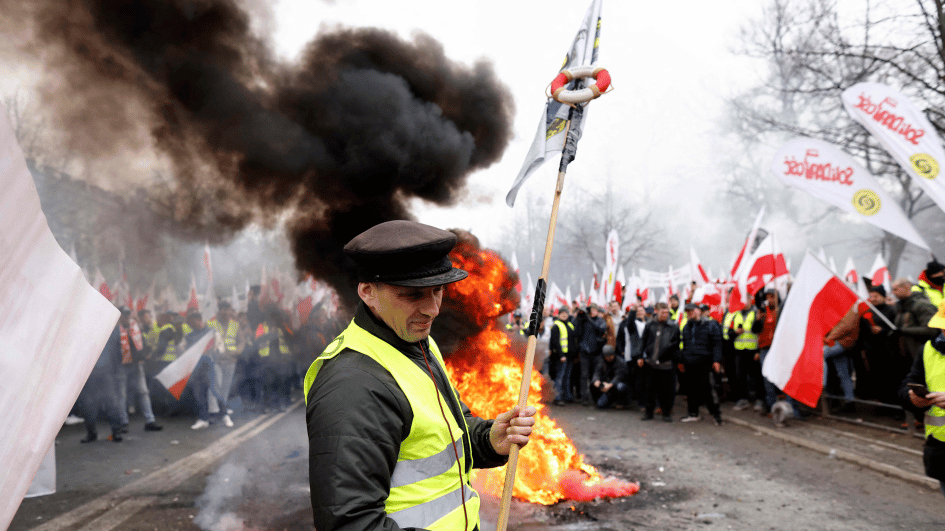
As the European parliamentary elections in June move ever closer, experts warn that pro-Russian players are flooding social media with false claims about the war in Ukraine to boost support for far-right and nationalist parties.
Pro-Russian accounts have been pumping out posts on Facebook, X and TikTok that depict Ukrainian refugees as violent criminals or claim that Kiev's government officials siphon off financial aid sent by the West to buy luxury yachts and villas for themselves.
Another theme with particular potency in countries closest to the conflict is that refugees receive higher state benefits than locals.
The aim of such propaganda is to weaken the EU's resolve and benefit anti-immigration parties like Germany's AfD, France's National Rally or the Party for Freedom in the Netherlands, said Jakub Kalensky, an analyst at the European Center of Excellence for Countering Hybrid Threats (Hybrid CoE) in Helsinki, Finland.
Such disinformation will "definitely play a role" in the June 6-9 vote, when more than 400 million Europeans choose a new five-year parliament, he said.
"When you exaggerate the risk of Ukrainian immigrants, you boost anti-immigration parties," Kalensky said.
"I'm convinced that if it weren't for the Russian propaganda, movements led by leaders like Marine Le Pen [in France], Geert Wilders [in the Netherlands] or Robert Fico [in Slovakia] would have significantly lower election results."
Dietmar Pichler, disinformation analyst at the Center for Digital Media Literacy in Vienna, believes that anti-Ukraine disinformation is likely to intensify ahead of the June vote as Russia tries to promote Kremlin-friendly European parties.
He has identified two main topics that have already surfaced in EU campaigns: The sanctions against Russia and financial aid to Ukraine.
But pro-Russian narratives also affect the policies of mainstream parties, sometimes silencing those who might otherwise throw their support behind Ukraine, according to the analyst.
"Some politicians are now afraid to address topics like Ukraine or Russia altogether because they fear attacks by Russian trolls, bots, and pro-Russian actors on the domestic level," Pichler said.
Even Kiev's staunchest allies, such as Poland, are not immune to the propaganda flooding the internet since Russia invaded Ukraine in February 2022.
Angry Polish farmers have protested about cheaper Ukrainian grain imports and claims are rife on Polish social media that refugees flood the labor markets, undercut wages, or receive welfare payouts that locals can only dream about.
According to an Ipsos poll from February 2024, the far-right Confederation, the only party in the Polish parliament not to unequivocally condemn the Russian invasion, is gaining support the fastest and could get 12 percent at local elections on April 7.
Hybrid CoE's Kalensky believes the biggest challenge for Europe will be to remain united and resist the flood of disinformation.
"The Russians are experts at playing the long game," Kalensky said. "They know that if they repeat a lie 100 times it will eventually become the truth."